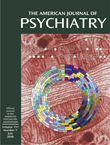Dr. Veldhuizen Replies
In an article by Dr. Pope and colleagues, the authors surveyed 367 board-certified psychiatrists with regard to their opinions about the diagnostic status and scientific validity of the DSM-IV categories of dissociative amnesia and dissociative identify disorder. They randomly selected general psychiatrists from the 1995 edition of The Official ABMS Directory of Board-Certified Medical Specialists. Reviewing the results of this study in Table 1, one could draw a conclusion quite different from that of the authors. With regard to dissociative amnesia, only 9% of those questioned felt that this diagnosis should not be included in DSM-IV in at least some form. If one excludes those who felt this diagnosis should be included only “with reservations” or “as a proposed diagnosis,” there is still a 4-to-1 preponderance (35% to 9%) of those who felt this diagnosis should be included without reservations. In addition, 71% of those questioned felt there was at least strong or partial evidence of the scientific validity of dissociative amnesia, compared to only 19% who felt there was little or no evidence.
Also, to further ensure the sample studied was representative, it would be helpful to know if the characteristics of the population studied (73% were men and 55% were older than 50) were consistent with the population of American psychiatrists as a whole. In addition, the authors did not fully explain the formula for selection of the psychiatrists and whether this formula ensured that there was no potential for bias as a result of the authors’ familiarity with the names of those selected to complete the questionnaire. The issue of potential bias, even if unintentional, is a significant concern with regard to this study in that at least two of the authors, Drs. Hudson and Pope, are paid substantial fees for legal consultation and appearances as expert witnesses testifying against the scientific validity of the dissociative disorders.



